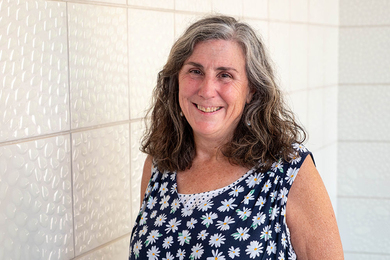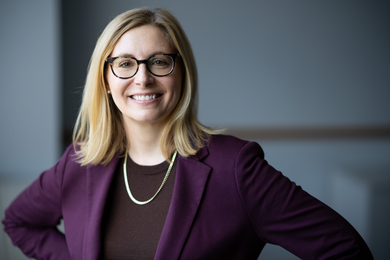CAMBRIDGE, Mass. -- MIT Professor Emeritus Peter Elias, a pioneer in the field of computer science, died of Creutzfeld-Jakob Disease last Friday in the living room of his Cambridge home, surrounded by his family. He was 78 years old.
"Many of us will remember Peter as a quiet and unassuming colleague who contributed a great deal to education and research at MIT," said Victor W. Zue, director of the Laboratory for Computer Science. "He was one of the most energetic emeritus professors I know -- coming to work almost every day and continuing to advise undergraduate students."
"In addition to being a distinguished researcher and educator, Peter was one of MIT's great citizens," said Professor John V. Guttag, head of the Department of Electrical Engineering and Computer Science (EECS). "He will be sorely missed."
Professor Elias was born on Nov. 23, 1923 in Brunswick, N.J., the son of an engineer in Thomas A. Edison's laboratory. He was a member of the MIT faculty from 1953 to 1991, at which time he assumed emeritus rank and became a senior lecturer.
Professor Elias attended Swarthmore College for two years before transferring to MIT in 1942. Upon receiving the S.B. in business and engineering management in 1944, he enlisted in the United States Navy and served as a radio technician instructor. After he was discharged in 1946 with the rank of Electronic Technician's Mate first class, he earned an M.A., a M.Eng and Sci., and a Ph.D. from Harvard University.
Professor Elias joined the MIT faculty in 1953 as an assistant professor. He became an associate professor in 1956 and a full professor in 1960, the year he became the youngest person to head EECS (he served until 1966). He later was acting associate head of computer science from 1981 to 1983 when Professor Joel Moses headed the department.
"Peter was a great theorist as well as a wonderful citizen of the EECS department," said Professor Moses, who visited Professor Elias shortly before he died. "Peter had a remarkable ability to recognize the best aspects of every person and issue. I shall miss him greatly."
After serving as the first Cecil H. Green Professor of Electrical Engineering from 1970 to 1972, Professor Elias was appointed Edwin S. Webster Professor of Electrical Engineering in 1974. He joined the Laboratory for Computer Science in 1976. He conducted research in information theory and its applications to problems in communication, data processing and computation in EECS and at the Research Laboratory of Electronics.
In recent years, Professor Elias took on the responsibility of the EECS colloquium. "When he became ill, his son Daniel told me that he was particularly concerned about not being able to discharge his responsibilities," said Zue. "This tells you the kind of person he was."
Professor Elias was a Fellow of the Institute of Electrical and Electronic Engineers (IEEE) ,the American Association for the Advancement of Science, the American Academy of Arts and Sciences, the National Academy of Sciences and the National Academy of Engineering. He also was a member of the Institute of Mathematical Statistics, the Association for Computing Machinery, Sigma Xi, Tau Beta Pi and Eta Kappa Nu.
Professor Elias served on the President's Science Advisory Committee panel on Computers in Higher Education, as a member of the Education and Accreditation Committee of the Engineer's Council on Professional Development, as chairman of the Information Theory Group of the IEEE and was a member of the IEEE Fellow Award Committee and of the IEEE Standards Committee.
He was one of three founding editors of the journal Information and Control (now Information and Computation) in 1957 and was a member of its editorial board until his death. He has also served on the editorial boards of the MIT Press, theProceedings of the IEEE and the IEEE Spectrum.
Institute Professor Emeritus Morris Halle, a longtime friend, recalled Professor Elias as an engaging conversationalist with a vast range of knowledge. "He was a helluva listener and an extraordinarily nice fellow," said Halle, a linguist. "I'm totally saddened. I felt very close to him."
In addition to being a member of the MIT faculty, Professor Elias held visiting professorships at the University of California/Berkeley in 1967-68, the Imperial College of Science and Technology in London in 1975-76, and at Harvard in 1983-84.
Professor Elias is survived by two sons, Daniel of Lincoln, Mass., and Paul of Cambridge; a daughter, Ellen Elias-Bursac of Cambridge; a sister, Barbara Elias of New York and Chilmark, Mass.; and six grandchildren. His wife of 43 years, Marjorie (Forbes), died in 1993.
A memorial service is scheduled for Saturday (Dec. 15) at 2 p.m. at the American Academy of Arts and Science, 200 Beacon St. Cambridge. The family requests that donations in Professor Elias' memory be made to the Greater Boston Food Bank, 99 Atkinson St., Boston, MA 02118-2701.






